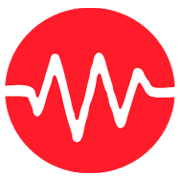 Medical Tests
Medical Tests
Tests are performed to determine the type, location, and cause of the Stroke and to rule out other disorders that may be responsible for the symptoms. There have been enormous breakthoughs over recent years in Stroke and medical tests will begin as soon as you arrive at the hospital in order to determine the most appropriate treatment.
It is important to speak with your Doctor to understand what tests are being conducted and to enquire about the results. The Medical team will determine what tests are required depending on the presenting symptoms and the condition of the patient. These are some of the tests which may be undertaken:
CT or CAT Scan: This is an X-ray imaging test done on the brain. It is used to determine if the Stroke was caused by bleeding (Haemorrhage) or a blockage (Ischaemic). They give the medical team a visual picture of the brain and they may use it to define the location and extent of the Stroke.
MRI (Magnetic Resonance Imaging) Scan: This is another imaging test which gives the medical team a very accurate and detailed picture of the brain. These are used to determine the presence, location and size of aneurysms and arteriovenous malformations, which are potential sources for Haemorrhagic Stroke. The patient is placed in a magnetic field, then the head is subjected to bursts of energy of a known frequency. The response of the brain cells to these bursts of energy is detected as signals that ultimately generate an image of the brain.
ECG (Electrocardiogram): This is used to check the electrical activity of the heart. It is used to check if your heartbeat is regular and is used to diagnose any heart conditions that may be linked to the Stroke.
Echocardiogram: This is a test that uses sound waves to create a moving picture of the heart. It is used in Stroke to determine if the Stroke may have been caused by a blood clot from the heart.
Carotid duplex: This is a procedure that uses ultrasound to look at the blood flow in the Carotid artery of your neck. It is used to check if there are any abnormalities in the blood flow, which may be caused by blood clots or other matter blocking the artery.
Heart Monitor: This is a device attached to your body to determine if a heart arrhythmia (such as Atrial fibrillation) may be responsible for your Stroke.
Blood work: This may be done to exclude immune conditions or abnormal clotting of the blood that can lead to clot formation. Blood tests, such as a complete blood count (CBC), blood sugar, electrolytes, liver and kidney function, and prothrombin time, a test that measures how long it takes your blood to clot, may be carried out. These tests are done to help your doctor make choices about your treatment and to check for conditions that may cause symptoms similar to Stroke.
For more information go to: www.nlm.nih.gov/medlineplus/ency/article/003799.htm
